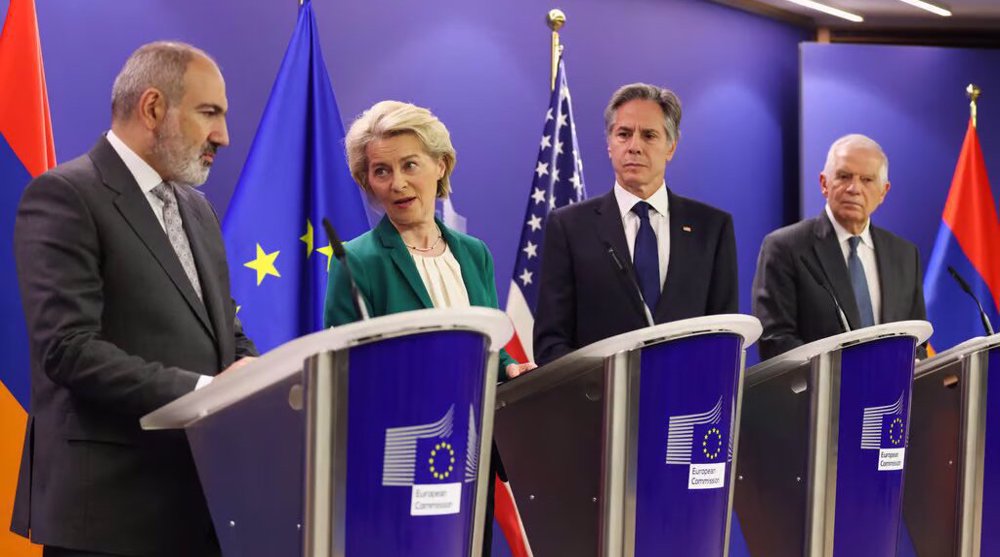Jordan's king suggests review of entire tax system amid massive protests
Jordan's king says the new government must launch a dialogue over a planned income tax law, which has sparked the country's biggest protests in years.
According to a palace statement, King Abdullah said the new cabinet should review the country's tax system and immediately start a dialogue over the draft income tax law.
He also said political parties, unions and civil society groups must take part in the talks.
The king appointed Omar al-Razzaz to form a new government after Hani Mulki resigned as prime minister in a bid to defuse public anger over price hikes. Razzaz, a former World Bank economist, was education minister in the outgoing government.
The embattled prime minister submitted resignation after the largest anti-government demonstrations in Jordan since 2011.
The ongoing protests widened on Saturday after Mulki refused to scrap a bill increasing personal and corporate taxes.
Thousands of Jordanians took to the streets of Amman and main provincial towns again on Sunday.
Amman's massive street protests showed no signs of stopping despite Mulki's resignation on Monday.
Thousands rallied in the Jordan's capital pushing nationwide protests into its fifth consecutive day. Angry protesters gathered in Shmeisani Circle and marched on 4th Circle close to cabinet office where they encountered resistance from riot police and the military.
Price increases have brought thousands of people onto the streets of Amman and other parts of Jordan in recent days.
The government says it needs more funds for public services and argues that the tax changes reduce social disparities by placing a heavier burden on high earners. Opponents say a tough IMF-imposed fiscal consolidation plan has worsened the plight of poorer Jordanians and squeezed the middle class.
Jordan's economy has struggled to grow in the past few years in the face of chronic deficits, as private foreign capital and aid flows have declined.
Jordan has a public debt of some $35 billion, equivalent to around 90 percent of its gross domestic product.
The price hike and steep tax increases, which the government of Mulki introduced earlier in the year as mandated by the IMF, are meant to cut into the debt.
According to official estimates, 18.5 percent of Jordan’s population of 9.5 million is unemployed, while 20 percent are on the brink of poverty.
May 16: ‘Axis of Resistance’ operations against Israeli occupation
Senegal PM blasts French military presence, raises possibility of closing bases
Fighting rages as Israel steps up Rafah invasion despite intl. outcry
Palestine urges FIFA to suspend Israel over war on Gaza
France deploys troops, declares emergency state to quell New Caledonia protests
VIDEO | Press TV's news headlines
VIDEO | Concerns in Israel about Rafah invasion
University of Calgary: Pro-Palestine encampment attacked by police












 This makes it easy to access the Press TV website
This makes it easy to access the Press TV website